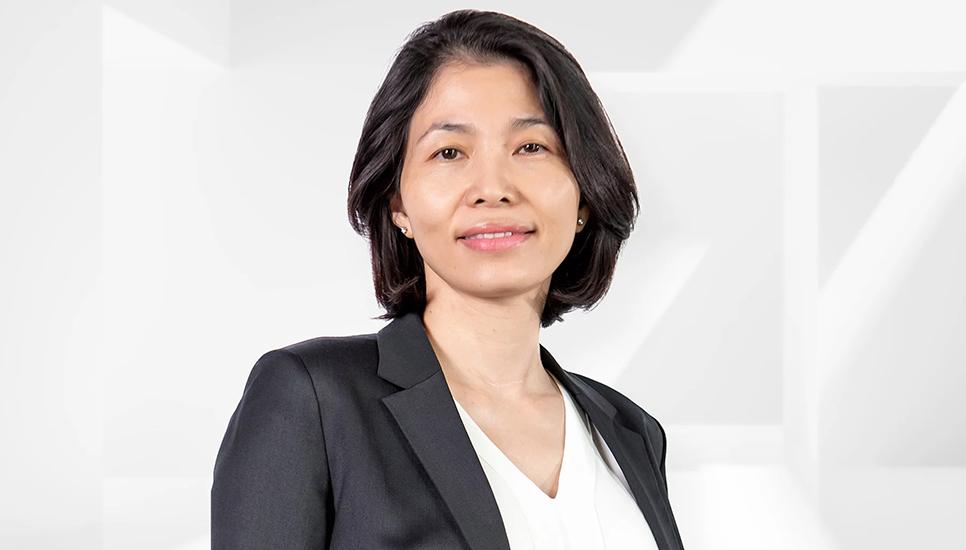Lam Thi Ngoc Hao: Growth and transformation in Vietnam

Since she began working with KPMG in Vietnam in 1998, Lam Thi Ngoc Hao has become a trusted advisor to some of the country’s biggest families.
Now currently leading the firm’s Private Business Practice, which aims to support fast growing businesses to overcome challenges through planning and managing growth, Hao leads a team of dedicated specialists and professionals with extensive worldwide experience and local understanding, who can advise fast-growing businesses on growth strategy, corporate structure, processes, procedures, system and the development of professional management practices.
Here, KPMG in Vietnam’s head of head of business transformation and head of clients & markets discusses how the family business landscape has changed over the decades and the benefits of investing in Vietnamese enterprises.
Tel us about your role as head of business transformation and head of clients & markets for KPMG in Vietnam.
Business transformation has a prominent place on corporate agendas. At any given point, corporates in Vietnam, including KPMG clients, are in some phase of business transformation. As we’ve observed, the majority of companies take a strategic approach to transformation by continually aligning their strategy, business models, and operating models with the dynamically changing marketplace.
Given the complexity of business transformation, we need to bring in multi-disciplinary teams - such as strategy, innovation, business consulting, risk consulting, technology consulting etc - to help our clients realise their vision… from aspiration to innovation to sustainable value realization.
My role as head of business transformation manifests one of KPMG's core values, ‘Together for Better’. Often, I see myself as the fuel that drives relentless client focus and the glue that binds our function teams together to provide solutions to address clients’ matters/issues throughout their transformation journey. Business transformation can be complex, challenging and, at times, uncomfortable. It isn't just the big engagements or the tech engagements, it's all of the jobs where we advise and support our clients through complexity, disruption and change. As a team, we recognise that a successful transformation isn't a big bang, it's a series of experiences and moments that require different skill sets to flex, adapt and perform. We show up in moments that matter.

You have been working with KPMG in Vietnam since 1998, just four years after the firm opened its first office in the country, how has the family business landscape changed in that time?
Well, it sounds like a lifetime… Especially since around one-third of my colleagues at KPMG were born after I joined the firm. I’m at a very interesting time in my career witnessing a growing number of professionals entering the labour market, as well as a growing number of businesses and start-ups making an entry into the economy.
I must say that Vietnam’s economy and business landscape changed dramatically, especially after our Doi Moi in 1986 and the US lifting its embargo on Vietnam in 1994. The first ten years of KPMG’s operations in Vietnam focused on serving non-governmental organisations (NGOs), multinational corporation (MNCs), and foreign direct investments (FDIs). During this period, you could hardly find a private or family business client to serve. Nowadays, out of more than 800,000 active businesses, non-state businesses account for more than 96% (2022, MPI The White Book).
With such a large portion of private businesses, we started to serve and support them in professionalising their governance structure, processes, people, risk and compliance for sustainable growth. Part of our private businesses are family businesses with either first or second generation at the helm. We are inspired by Vietnamese entrepreneurs who have the vision to build businesses not only for profit but also for generations to come. We are passionate about supporting them in realising their dreams and visions.
In your role, you help family businesses to grow and develop, What are some of the worries affecting Vietnamese ultra-high-net-worth (UHNW) families?
That’s a very interesting question. I am constantly on edge thinking about the pain points of Vietnamese UHNW families. Without putting myself in their shoes, I would not be able to help them grow and develop. My discussions with them tell me that the top three concerns that they will need to address are:
First, the succession story. At this moment in time, there are a number of successful businesses where the first generation is transitioning to the second. As this is their first time, the current generation lacks experience or a clear understanding of how to structure this transition and how to navigate themselves through the transition journey. The founding generation is uncertain of the next generation’s deep understanding of the political and economic landscape, industry, operations, customers, and employees. Some keep delaying this transition process to wait for either the maturity of their next generation or their own’s readiness to retire.
Second, the ability to sustain and grow their wealth generation after generation. It has taken the first generation of UHNW families uncountable effort over the years to grow their businesses to the size and scale they are today, it is imperative for the next generation to safeguard the family legacy.
Finally, the ability to seize business opportunities for the past three decades has been the key to the success of many UHNW families. The current generation is uncertain whether the next generation will be able to grab new opportunities to either expand or maintain the relevance of their family businesses in this disrupted era.
Vietnam has been experiencing robust economic growth for many years.
Vietnam has seen rapid economic growth in recent years, how much of this is down to foreign direct investment, and how much is down to homegrown innovation and development?
Let me put it this way. FDI enterprises contribute around 20% of GDP and their investment was about 15.8% of the total country investment (MPI 2022, The White Book). It is certain that besides funding, FDIs are bringing in know-how and new technology. R&D is invested locally by both FDI and local enterprises, and Vietnam is also benefiting from being part of the global supply chain and a member of multiple free trade agreements (FTAs)… which means there will be more homegrown innovation and development in the future.
What are the benefits for global family offices thinking of investing in Vietnamese enterprises?
Investing in Vietnamese enterprises may bring portfolio diversification and growth potential for global family offices. Vietnam has been experiencing robust economic growth for many years. The country has a growing middle class, a favorable demographic profile, and a rapidly expanding consumer market. This growth potential presents attractive investment opportunities across various sectors. In addition, Vietnam has maintained political stability, providing a conducive environment for investment. The government has implemented various reforms to enhance the business climate, including simplifying regulations and promoting foreign investment. Policies such as tax incentives, FTAs, and infrastructure development projects further support investment opportunities. Investing in Vietnamese enterprises at an early stage can offer the potential for value appreciation over time.

Campden Wealth’s 2022 Asia Pacific Family Office Report found that there is an increased interest in sustainable investing. 42% of those surveyed now invest sustainably, an increase of 4% on last year and 2% higher than the global average. This percentage is expected to increase to 50% over the next five years. Why do you think there’s an increased focus on sustainable investment?
It’s definitely the direction businesses a heading to. Look at the recent pandemic and its impacts as well as the impact of climate change. Investment has been directed towards sustainable businesses which are considering such issues as environmental, social, and governance (ESG) in their business operation. It has become a requirement for any responsible investors, absolutely a new norm. By embracing sustainability as a core value, businesses can attract not only investors but also customers, and partners who value ESG initiatives. In short, companies that are more committed to ESG are prioritising the investment of investors who are looking to leave a greener planet to the next generation.
For 65% of Asia-Pacific offices, engagement with sustainability also provides an opportunity to investigate new sectors, industries, and technologies which could be the source of attractive investments in the future. Will this business approach to sustainability to more Vietnamese innovation in the future?
We all know that Vietnam announced a target to achieve net zero by 2050 target during the COP26 World Leaders' Summit in 2021. In July 2022, Vietnam enshrined its net zero target in law. It has also developed a National Climate Change Strategy to guide its planning to achieve the target (which it approved per Decision No.896/QD-TTg). With this commitment and the global trend toward sustainability, I believe there will be new opportunities for businesses in Vietnam to be part of this interesting journey. To name a few, renewal energies, recycled businesses, and circle economy have become priorities and received government grants/support/tax incentives/favorable tariffs.
This will for sure attract more resources/talents/efforts toward this direction. We will see more innovation from businesses that are actively embracing this opportunity in the time to come.






